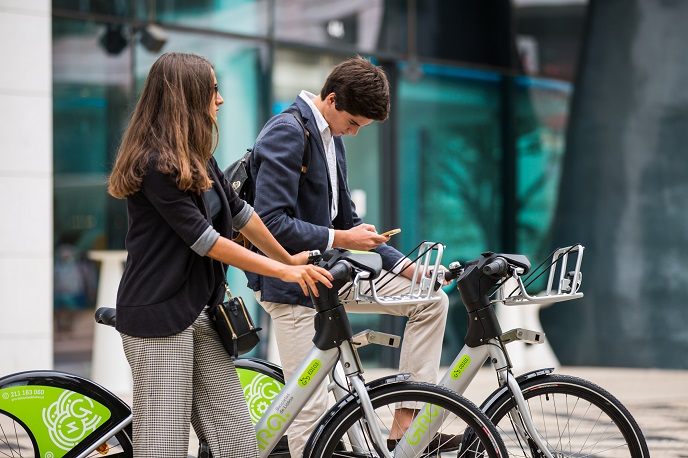Sustainable future on the horizon: cities powered by intelligent algorithms
A real smart city will not necessarily look like those featured in science fiction movies, with futuristic buildings and flying cars. Funded by the Marie Skłodowska-Curie Actions programme, the NeCOL project provides an example of what the next wave of cities could look like: putting people first by focusing on solving urban problems rather than on flashy new developments. “Advanced technologies such as AI should be used purposefully to make better decisions and offer a better quality of life for people. It is our obligation to help people, as we now have the tools,” notes project coordinator Jamal Toutouh.
Species evolution inspires algorithms
Working in the MIT Computer Science and Artificial Intelligence Laboratory and the University of Malaga, Toutouh explored how to apply nature-inspired algorithms in deep learning. The idea has been to improve the efficiency of the state-of-the-art methodology and use deep learning in difficult-to-address problems, such as those faced by smart cities. The focus was on developing optimisation algorithms for training neural networks not based on gradient methods. “Nature has good ideas. We focused on a field of study that suggests putting a neural network through evolutionary processes,” states Toutouh. This brings back Darwin’s concept of evolution: based on the mechanics of natural selection and genetics, the strongest genetic algorithms are used to train the network. To approximate difficult optimisation problems, Toutouh has also used swarm intelligence algorithms. These are inspired by the collective behaviour observed in nature that allows organisms of the same species to cooperate to perform complex tasks, such as ant colonies, bee swarms, bird flocks or fish schools. Other collective strategies under study were the coevolutionary algorithms that implicate two competing species in nature. “In the predator-prey model, the predator learns how to attack the weak prey, while the latter tries to escape. Such a situation can be transposed to optimisation problems: the predator is an objective, and the preys are feasible solutions,” explains Toutouh. All these lessons learnt from (co-)evolutionary algorithms served as input to a tool called Lipizzaner(opens in new window). This framework defines a resilient method to train generative adversarial networks(opens in new window).
Intelligent algorithms could improve urban quality of life
All issues addressed by NeCOL were real-world scenarios using real-world data. “Following Madrid City Council’s decision to ban cars from entering the city centre, we used available air pollution data and applied machine learning to identify whether this decision would really help improve air quality. Combining air quality data with other data sources, our intelligent methods helped us deduce that air pollution levels could be reduced indeed,” states Toutouh. NeCOL also addressed smart waste management. “We used AI to first detect the optimal places of placing the rubbish bins in terms of quality of service and cost and then select the best route for trucks to collect the rubbish. Another parameter injected was the amount of trash inside the bin to ultimately decide the collection frequency,” explains Toutouh. Ultimately, Toutouh implemented intelligent algorithms to detect the best locations to install electric vehicle chargers in Malaga, Spain. “Our method offers not only one solution but a set of solutions with trade-offs between quality, cost and time. Usually, the focus is on optimising cost. Nevertheless, using AI, we offer decision-makers all necessary tools to decide,” he concludes.







